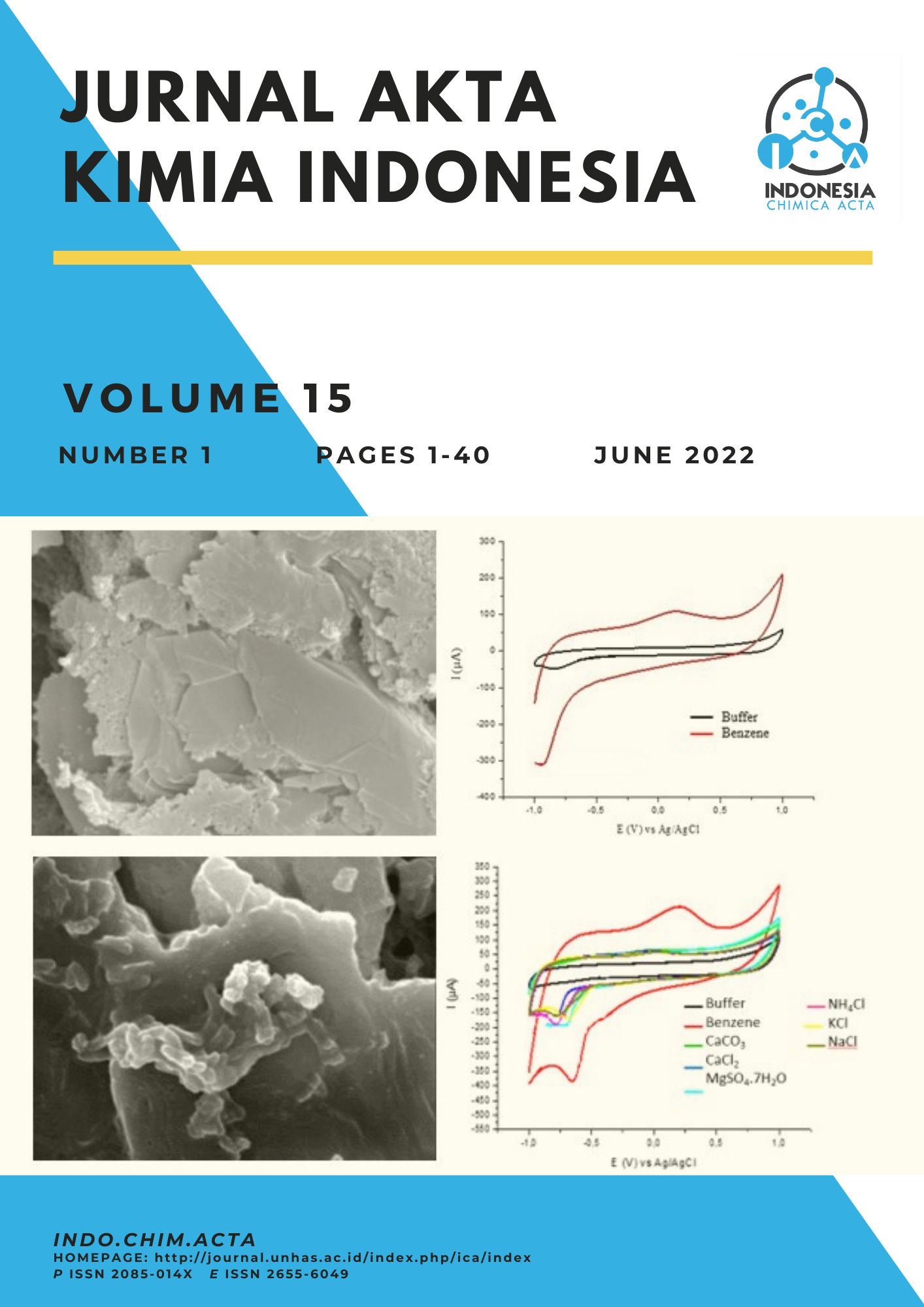Main Article Content
Abstract
Today's marine tourism is experiencing rapid growth to meet the global needs of the world's population. Exploitation of marine biological wealth is no less important because it involves human life. The marine ecosystem must be of high quality and free from exposure to toxic pollutants, such as PAHs. The marine ecosystem must be of high quality and free from exposure to toxic pollutants, such as PAHs, microplastics. This research aims to provide data and information about the types and abundance of aromatic hydrocarbon compounds in sediments, sea water and marine biota around KKI waters. The analytical method to meet these objectives uses GS/MS. The status of marine tourism areas, especially around KKI waters, is declared polluted by PAHs. The types of PAHs identified in each sample at the three sampling stations were dominated by naphthalene (NL), phenanthrene (PT), pyrene (PR) and azulene (AZ). The average total abundance of PAHs in sponge samples (±70.51%), sediments (±67.30%), followed by seawater samples (±64.85%), starfish samples (±41.80%) and fish (±26.74%). The NL type PAHs were found in all types of samples and at all stations, where the PAHs were thought to originate from industrial, hospital, and household activities. The status of marine tourism, especially around the KKI waters, for tourists needs to be careful and alert, because the KKI area is not completely free from harmful and toxic pollutants, so it is a risk to health. Makassar City TMA managers are encouraged to make efforts to reduce the rate of increase in the concentration of regional PAHs, such as providing periodic data and information about harmful pollutants, education for every tourist to care about waste and planting coastal plants such as mangroves which have a biofilter function against toxic pollutants.
Article Details

This work is licensed under a Creative Commons Attribution-ShareAlike 4.0 International License.
How to Cite
Marzuki, I., Lubis, N. R. P., Irham Pratama, & Kasim, N. N. . (2022). ISM Identification and Distribution of Polycyclic Aromatic Hydrocarbon Pollutants in Coastal Ecosystem the Marine Tourism Area, South Sulawesi. Jurnal Akta Kimia Indonesia (Indonesia Chimica Acta), 15(1), 1-10. https://doi.org/10.20956/ica.v15i1.20898
